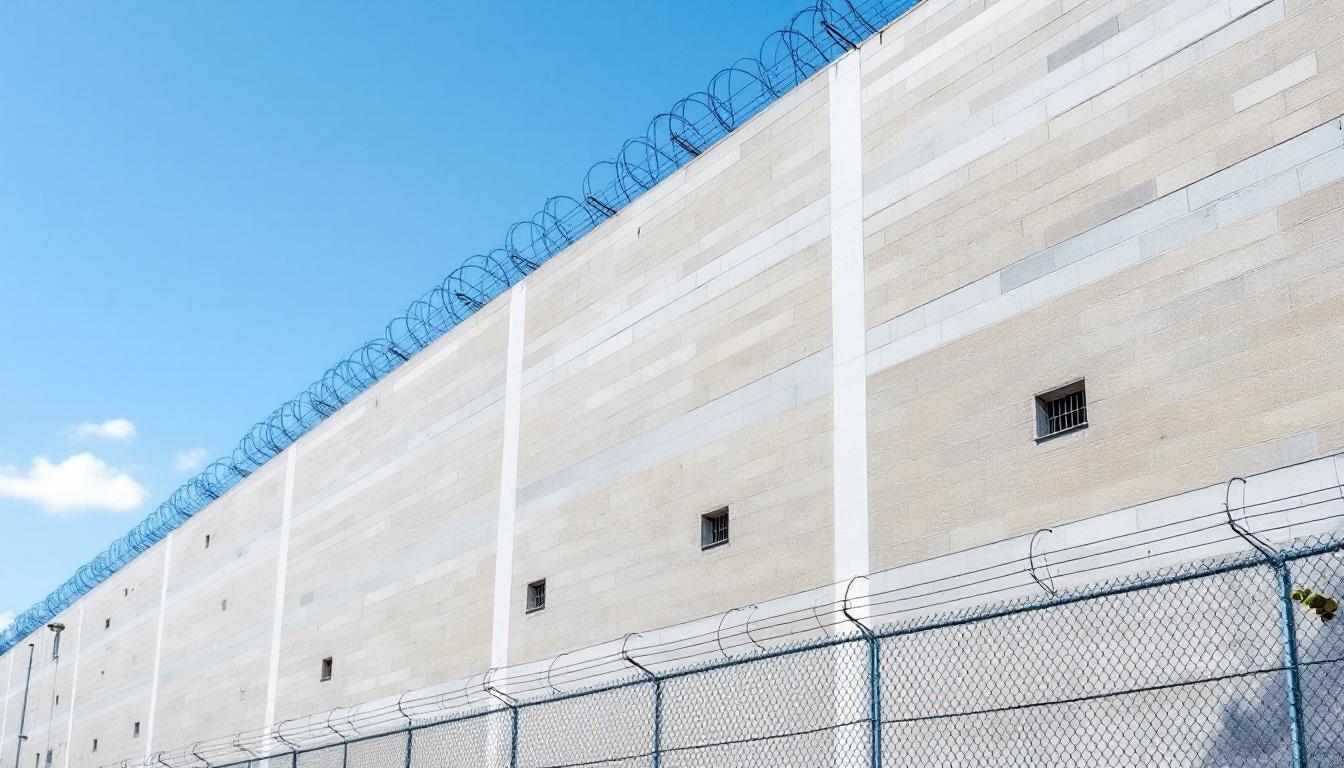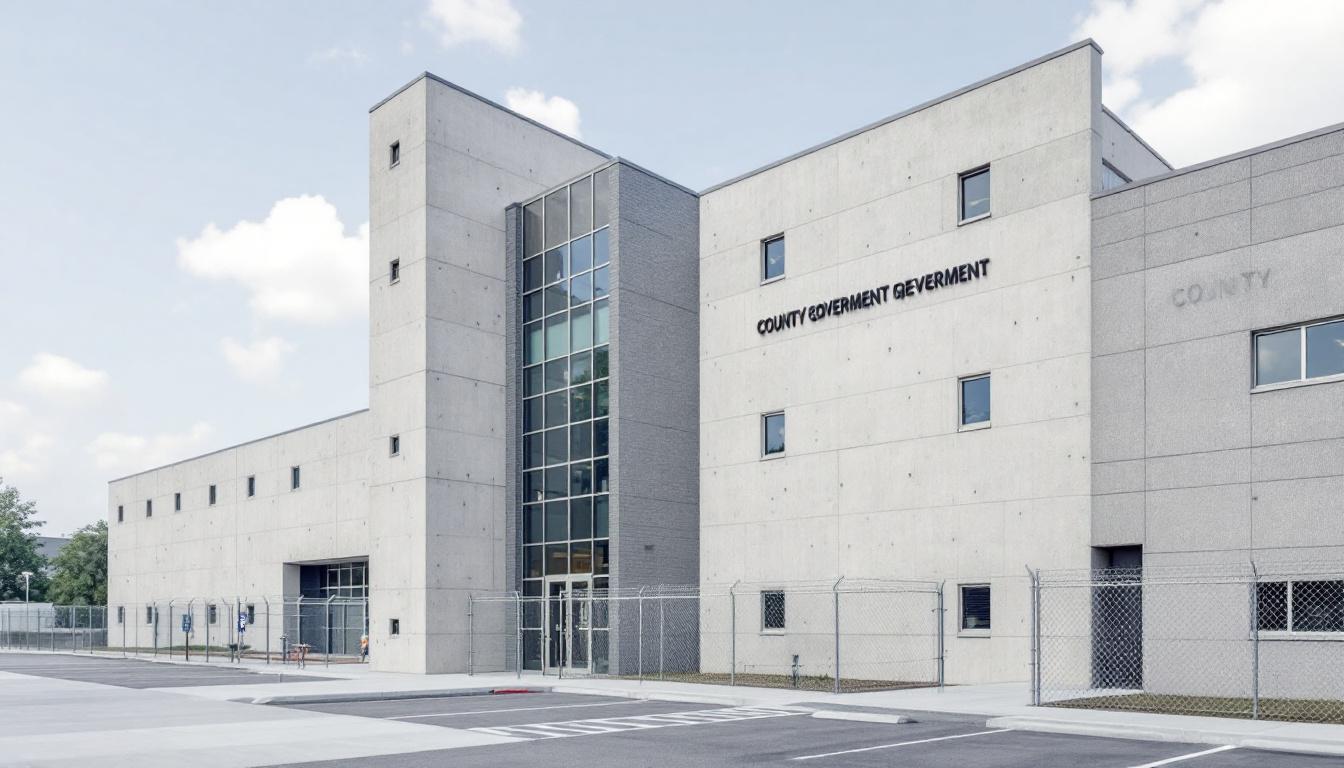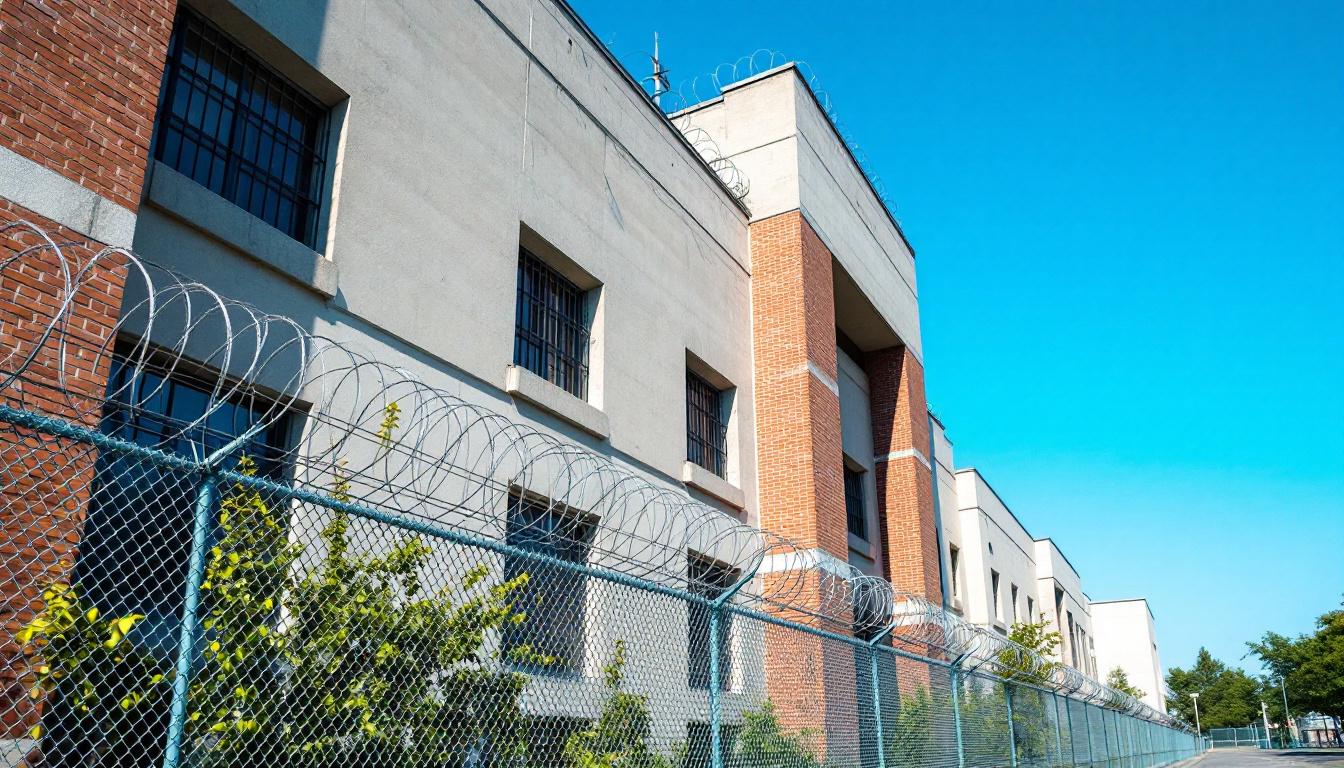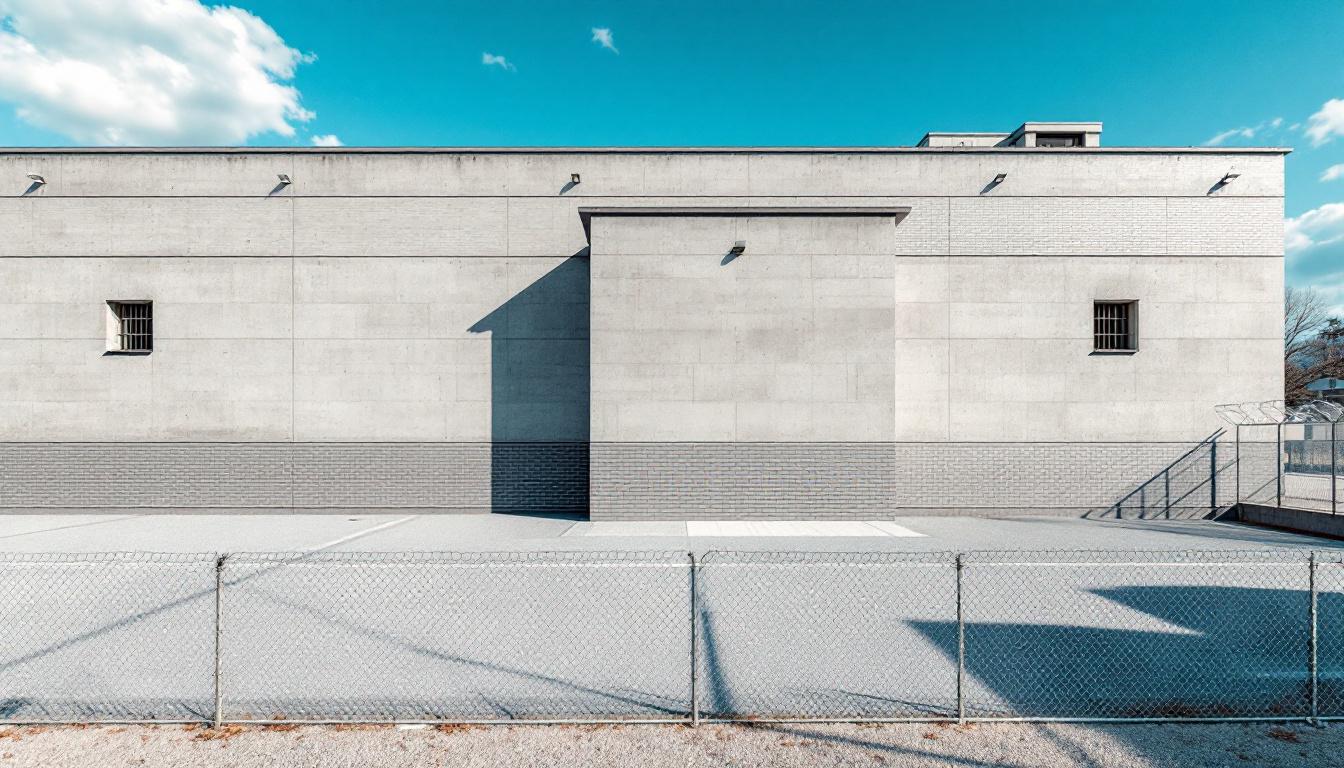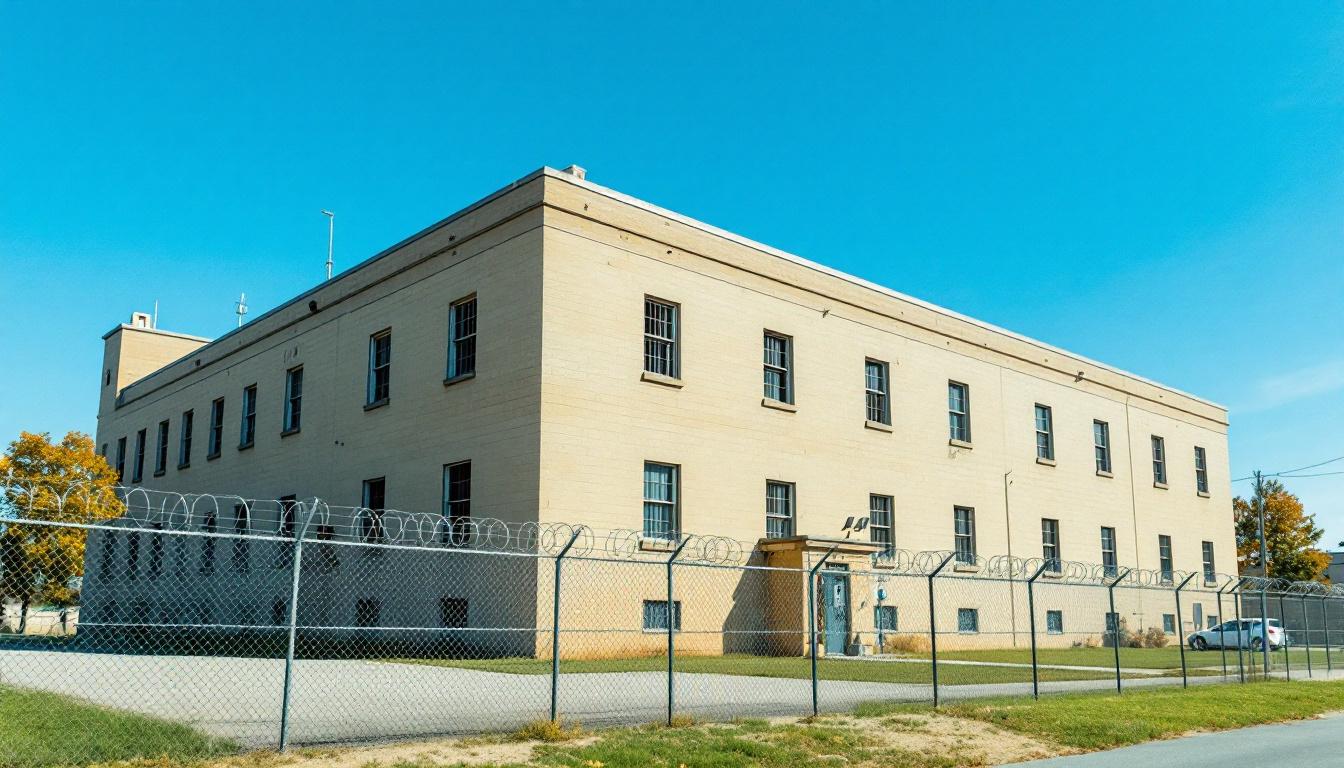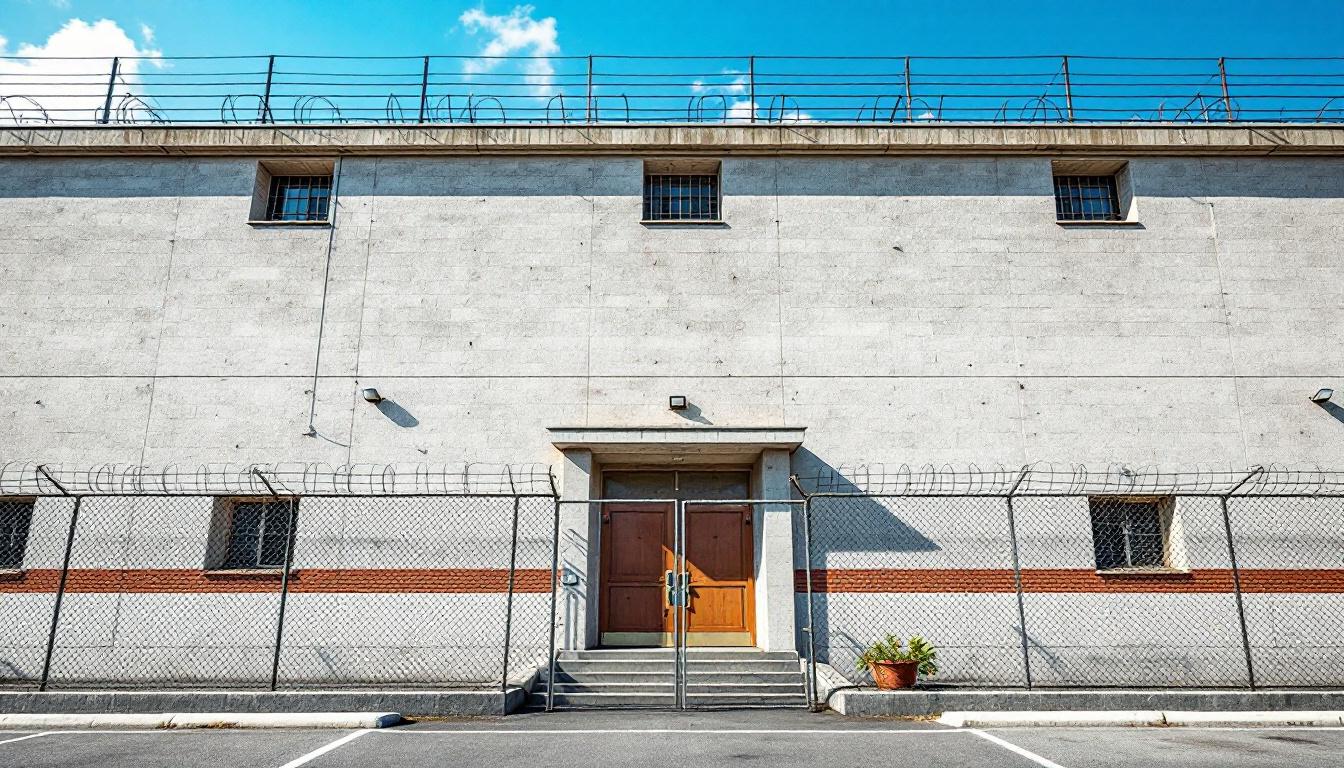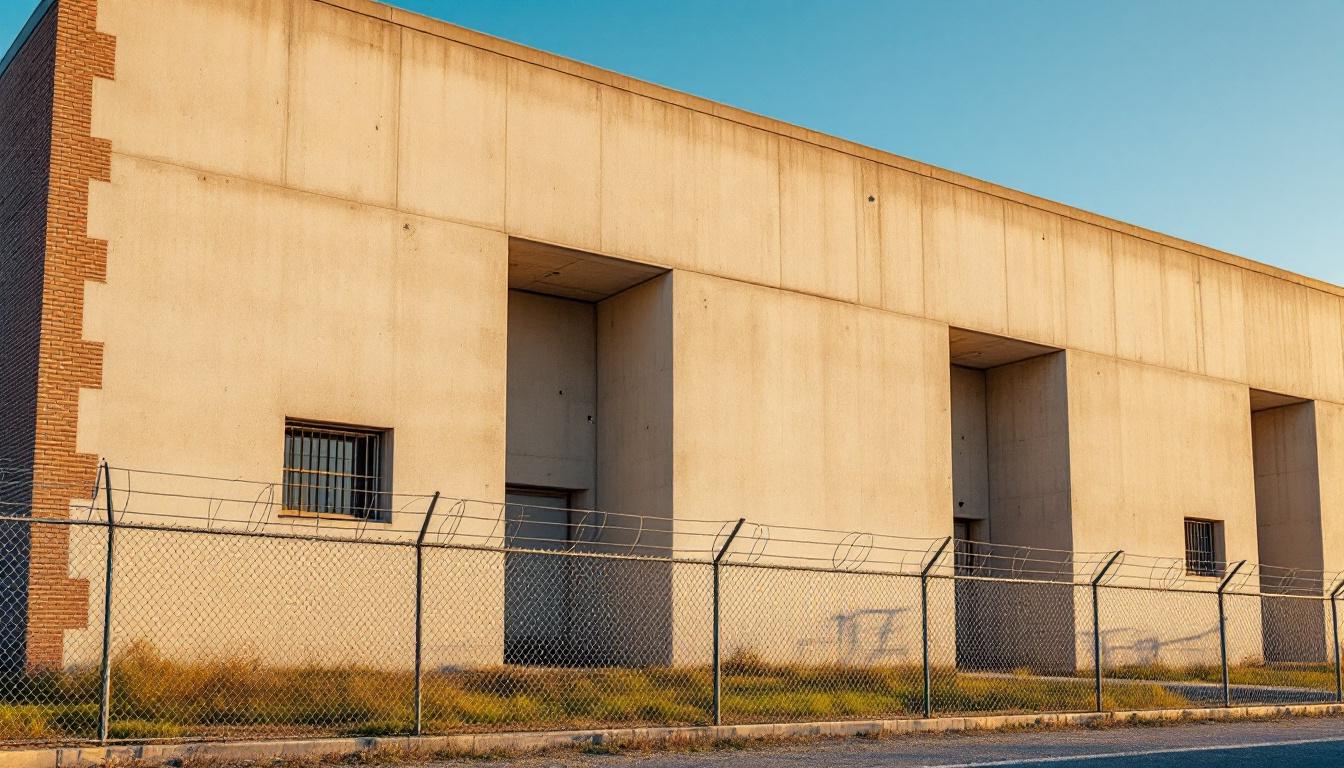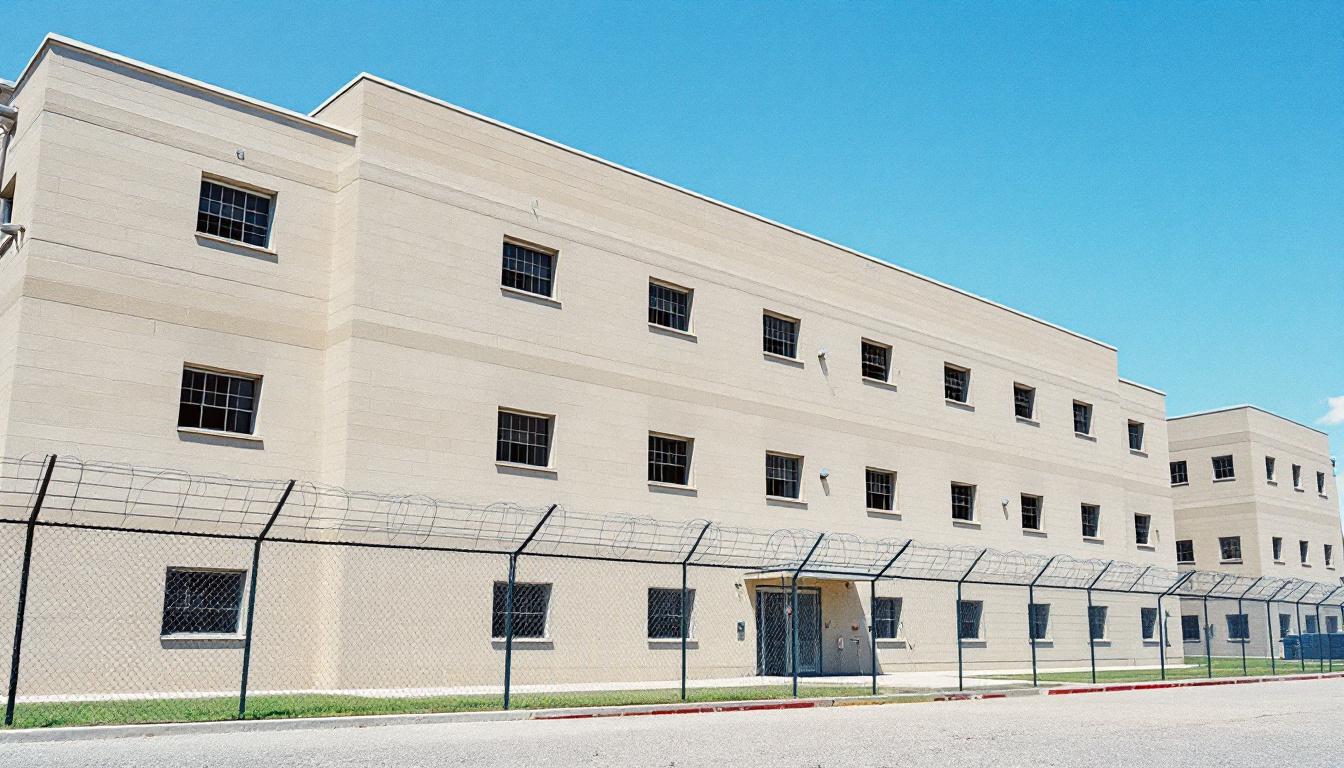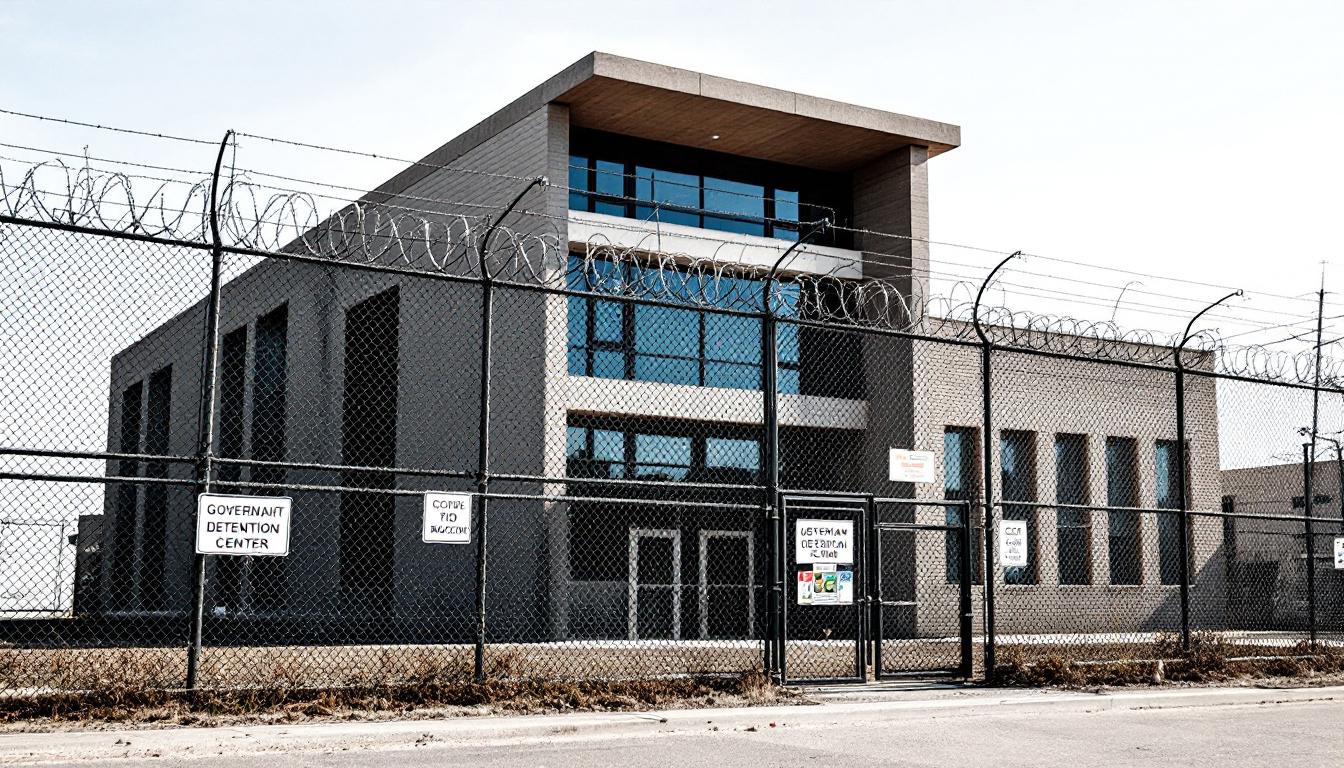
Quick Navigation
How to contact an inmate at Henderson County Jail
This comprehensive guide will walk you through how to connect with an inmate at Henderson County Jail. Follow the steps below to find an inmate and send letters and photos:
- Search for the inmate using our search tool below
- Create your account or log in to Penmate
- Write your message (up to 6,000 characters)
- Send instantly - inmates receive printed copies daily
Find an Inmate
Search for an inmate to start communicating today
Tip: You can search by first name, last name, or inmate ID number
To contact a person at Henderson County Jail start by searching for the person on the official facility website. Perform a search by following these steps:
- Step 1: Enter their first name and last name into the search form and click "Search"
- Step 2: Locate their inmate record
- Step 3: Write down their Inmate ID and any housing information provided
Important! Be sure to enter the person's full name. Nicknames should not be used.
How to Send Messages to Inmates

You can use your phone or computer to send emails, letters, and photos to an inmate. Messages are sent electronically to inmate tablets or kiosks at the facility. If you would like to send a message, start by searching for an inmate at Henderson County Jail.
Sending Photos and Postcards

A great way to send love and support to a loved one at Henderson County Jail is to send photos and postcards. It only takes a few minutes to send photos from your phone and it makes a huge difference. You can also mail postcards with words of support and inspiration, or design your own postcard for special moments like birthdays and holidays.
Important! Be sure not to send any explicit photos or they may not be approved by the facility. You can also use a photo printing app like Penmate to make sure your photos are printed at the correct size (4x6 or 3x5) and are mailed according to the rules and regulations of Henderson County Jail.
Frequently asked questions about Henderson County Jail
-
How long does it take to deliver a message?
If you're sending an email message your letter is usually delivered within 24-48 hours. For messages sent via mail you should expect delivery within 3-7 days. All messages will need be approved by Henderson County Jail.
-
How much does it cost to send a message to Henderson County Jail?
You can send a message free using your phone or mail a message via USPS for the price of a $0.60 stamp and envelope. You can also purchase credits or e-stamps from services starting at $1.99.
-
What services can I use to contact an inmate at Henderson County Jail?
Penmate
You can use Penmate to send letters and photos to an inmate from your phone. It's an easy way to stay in touch during your loved one's incarceration. Use the inmate locator to find an inmate's location and contact information, then you can send messages within a few minutes.
Securus messaging
Securus may be another option for communicating with an inmate at Henderson County Jail. You can create a friends and family account and purchase credits to send messages. All messages will be reviewed and must be approved by the facility.
JPay
Some county jails and state prisons may support sending messages with JPay. You must register an account with the system, find your loved one, and purchase stamps to send messages. For some locations you can also attach photos.
Smart Jail Mail
You may also check if Smart Jail Mail is available at Henderson County Jail. Smart Jail Mail is operated by Smart Communications and has contracted with some state and county jails. After purchasing credits, your messages and photos are sent to the facility, printed out, and then handed out to your loved one.
-
What is the mailing address of Henderson County Jail?
Mailing address:
Henderson County Jail
206 N Murchison St
Athens, TX 75751
Phone: (903) 677-6323Business hours:
- Monday: Open 24 hours
- Tuesday: Open 24 hours
- Wednesday: Open 24 hours
- Thursday: Open 24 hours
- Friday: Open 24 hours
- Saturday: Open 24 hours
- Sunday: Open 24 hours
-
What are the visiting hours at Henderson County Jail?
Visiting hours at Henderson County Jail vary by housing unit and security level. Generally, visits are scheduled on weekends and holidays, with some facilities offering weekday visits. Contact the facility directly at (903) 677-6323 or check their website for the current visiting schedule. Visits typically last 30-60 minutes and must be scheduled in advance.
-
What items are prohibited when sending mail to Henderson County Jail?
Prohibited items typically include: cash, personal checks, stamps, stickers, glitter, glue, tape, staples, paperclips, polaroid photos, musical or blank greeting cards, hardcover books, magazines with staples, and any items containing metal or electronics. Only send letters on plain white paper with blue or black ink. Photos must be printed on regular photo paper (no Polaroids). Always check with Henderson County Jail for their specific mail policies.
-
How do I send money to an inmate at Henderson County Jail?
You can send money to an inmate at Henderson County Jail through several methods: 1) Online using JPay, Access Corrections, or the facility's approved vendor, 2) Money orders mailed directly to the facility with the inmate's name and ID number, 3) Kiosks located in the facility lobby, or 4) Over the phone using a credit or debit card. Fees vary by method, typically ranging from $2.95 to $11.95 per transaction.
-
Can I schedule a video visit with an inmate at Henderson County Jail?
Many facilities now offer video visitation as an alternative to in-person visits. At Henderson County Jail, video visits may be available through services like Penmate, Securus Video Connect, GTL, or ICSolutions. Video visits typically cost $10-20 for 20-30 minutes and must be scheduled in advance. You'll need a computer or smartphone with a camera and reliable internet connection. Contact the facility for their specific video visitation policies and approved vendors.
-
What identification do I need to visit an inmate at Henderson County Jail?
All visitors must present valid government-issued photo identification such as a driver's license, state ID, passport, or military ID. Minors must be accompanied by a parent or legal guardian who can provide the minor's birth certificate. Some facilities require visitors to be on the inmate's approved visitation list, which may require a background check. Contact Henderson County Jail for specific ID requirements and visitor approval procedures.
-
How can I find out an inmate's release date?
To find an inmate's release date at Henderson County Jail, you can: 1) Use the online inmate search tool if available, 2) Call the facility's records department, 3) Contact the inmate's case manager or counselor, or 4) Have the inmate provide this information during a call or visit. For privacy reasons, some facilities only release this information to immediate family members.
Facility Overview
Official Website

About Henderson County Jail
Educational programming, vocational training, and comprehensive support services form the foundation of operations at Henderson County, Athens, TX, where evidence-based approaches guide both security protocols and individual development initiatives. This TX correctional facility typically offers structured pathways designed to address the diverse needs of individuals while maintaining the institutional standards essential for community safety and successful outcomes upon release.
Located in the heart of East Texas, the facility operates within a regional correctional framework that has evolved significantly over decades of criminal justice reform and community-centered approaches to rehabilitation. Athens, with its rich heritage as a county seat and educational hub, provides a contextual backdrop where traditional values intersect with progressive correctional methodologies. The facility's commitment to security and rehabilitation reflects broader shifts in how Texas institutions balance public safety concerns with evidence-based practices that may include cognitive behavioral programming, substance abuse treatment, and educational opportunities ranging from basic literacy to technical certifications.
Henderson County's approach to individuals services generally encompasses multiple dimensions of personal development, from mental health support and medical care to pre-release planning that connects participants with community resources. The facility's role within the state's correctional system emphasizes measurable outcomes through structured programming that typically addresses criminogenic factors while building practical skills for community reintegration. This comprehensive framework operates under the principle that effective correctional practices must simultaneously protect public safety and create meaningful opportunities for personal transformation within a secure institutional environment.
Programs & Services
Multiple pathways for personal and professional development form the foundation of opportunities available to individuals at Henderson County correctional facilities. The comprehensive approach recognizes that successful reintegration requires addressing various aspects of an individual's life, from practical job skills to personal growth and community connections. This multi-faceted programming model typically emphasizes both immediate needs and long-term preparation for life after release.
Educational and vocational opportunities often include structured vocational training programs designed to provide marketable skills in various trades and industries. These hands-on learning experiences may offer certifications that individuals can use to secure employment upon release. Work programs within the facility typically provide practical experience while contributing to facility operations, allowing participants to develop workplace habits and professional skills in a supervised environment.
Furthermore, support services and specialized opportunities often encompass faith-based initiatives that provide spiritual guidance and community connections for interested individuals. Transitional planning services may offer assistance with housing, employment searches, and accessing community resources before release. Work release programs typically allow qualified individuals to maintain employment in the community while serving their sentence. Additionally, landscaping opportunities and mentoring programs often provide both practical skills development and positive relationship building, creating networks of support that extend beyond the facility walls.
Daily Life & Visitation

The sound of morning announcements marks the beginning of each day, as individuals prepare for a structured routine that continues throughout their time at the facility. Daily schedules typically include designated times for meals, programming activities, and work assignments, with staff generally conducting regular counts to maintain security protocols. The facility currently operates on a schedule that allows individuals to participate in various activities while ensuring orderly operations across all housing units.
Living accommodations usually consist of shared cells or dormitory-style housing, where individuals are provided basic necessities including bedding, personal hygiene items, and limited storage space for approved personal property. Meals are typically served in a central dining area at scheduled times, with menu options that generally meet basic nutritional requirements. Furthermore, individuals may access commissary services to purchase additional food items and personal care products, subject to facility regulations and account availability.
The facility often offers recreational opportunities such as outdoor exercise periods, television viewing in common areas, and access to library materials when available. Although movement throughout the facility is regulated, individuals typically have opportunities to participate in work assignments that may include kitchen duties, maintenance tasks, or facility cleaning responsibilities. Visitation policies generally allow scheduled visits with approved family members and friends, while communication options usually include monitored telephone calls and correspondence, helping individuals maintain important connections with their support systems outside the facility.
Ready to Connect?
Start communicating with your loved one today
Search for an Inmate
